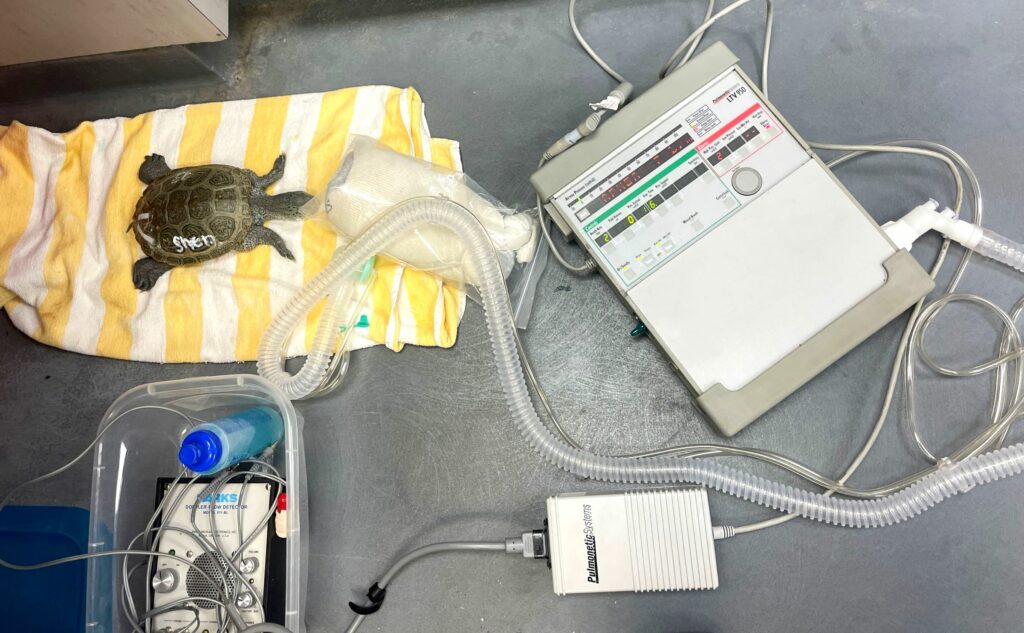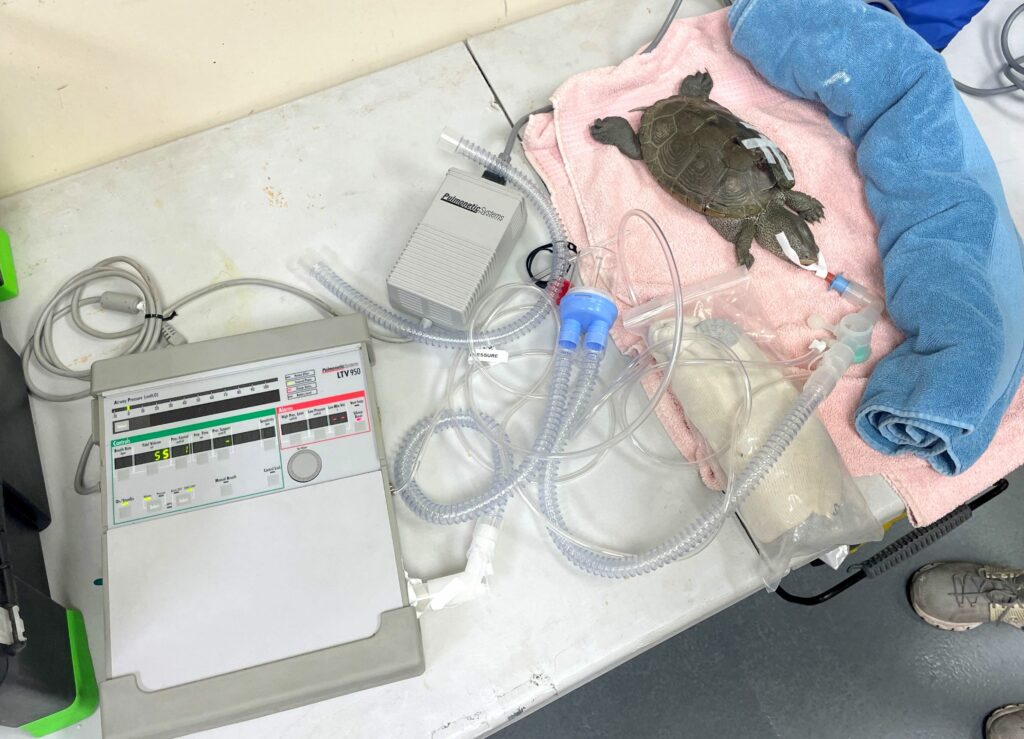by Dr. Shane Boylan, GSTC Veterinarian
Reptiles’ “cold-blooded” nature can be both a blessing and a curse in veterinary medicine. The term “cold-blooded” describes reptiles, amphibians, fish, and invertebrates in our Jekyll Island ecosystem. These animals regulate their body temperature based on their environment, unlike “warm-blooded” animals like mammals and birds, which maintain a constant body temperature through metabolism. Cold-blooded animals typically have body temperatures that match their environment, which is usually colder and slower than that of mammals or birds. They change their behavior to adjust their body temperature, such as pond turtles sun-basking on logs to warm up after swimming in cooler water.
Cold-blooded physiology allows these animals to use less energy and oxygen, helping them survive in conditions that would overwhelm warm-blooded animals. However, their slower metabolism can make anesthesia more challenging.
Anesthesia involves using medications to make a patient unresponsive to pain. “Local” anesthesia numbs a small area while the patient remains awake, like at the dentist. “General” anesthesia makes the patient completely unconscious for more complex procedures. During these procedures, the veterinary team monitors and maintains critical functions like heart rate and breathing. Since the patient can’t breathe on its own, staff must manually ventilate the patient every 2-3 minutes until recovery. Reptile recoveries can take hours to days due to their slower metabolism, which is exhausting for staff.
The recent purchase of a ventilator, funded by the Jekyll Island Foundation, highlights the importance of donor contributions. The ventilator helps patients breathe during and after surgery and can accommodate various animals, from two-hundred-pound loggerhead sea turtles to two-pound diamondback terrapins. It improves care reliability, especially for long sea turtle recoveries that can exceed twenty-four hours.
The patients and staff at the GSTC are very grateful for the support from the Jekyll Island Foundation and island visitors. Your contributions directly benefit local wildlife. If you’re interested in supporting the Georgia Sea Turtle Center, click HERE, or to learn more about the Jekyll Island Foundation, visit jekyllislandfoundation.org.



